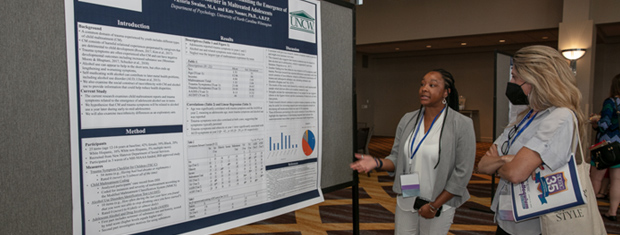




The APSAC Advisor is a peer reviewed quarterly news journal for professionals in the field of child abuse and neglect.
The APSAC Advisor provides succinct, data-based, practice-oriented articles that keep interdisciplinary professionals
informed of the latest developments in policy and practice the field of child maltreatment. It is designed to highlight
best practices in the field and publish original articles and current information about child maltreatment for professionals
from a variety of backgrounds including medicine, law, law enforcement, social work, child protective services, psychology,
public health and prevention in the U.S.
 If you wish to learn more about submitting an article to the Advisor, please click here.
If you wish to learn more about submitting an article to the Advisor, please click here.
This library contains Advisor issues dating back to the first issue in 1988. The most recent issue appears at the top.
Scroll down to select past issues by year and issue number. Once a publication appears in the box, you
can use the Enlarge button to open the document in a new window or tab (depending on how your browser is set up).
This will allow you to view the document with larger print.
To print a document, first use the Enlarge button to open the document in a new window or tab. Then use your browser's Print command.
To return here from a new tab, close the tab. To return from a new window, click your browser's Back button.
In the listing below, click on a year and issue number to see the articles in that publication.
1996 Number 3
Engaging and Retaining Families in Child Abuse Prevention Programs
Prevention programs, by definition, seek to intervene before an overt act of parental abuse or neglect occurs. Consequently, these programs cannot use the force of law to mandate a family's participation. Most prevention programs struggle with engaging and maintaining the voluntary involvement of the target families, especially when these programs attempt to serve high-risk populations.
The Effect of Threats on Children’s Disclosure of Sexual Abuse
Do abused children refuse to disclose their abuse because they have been threatened by their perpetrators?
Applying the Strengths Perspective With Maltreating Families
The purpose of this article is to review some of the principles and tools of the strengths-based perspective, and to share with all APSAC members the work done by their colleagues in a seminar taught by the authors at the APSAC Fourth National Colloquium in Chicago in June 1996.
Missing Data by Design: The Good News About Missing Data
Few aspects of doing research are as frustrating as the loss of data. Data are lost or missed in various ways and for many reasons: questions are accidentally omitted, subjects skip pages or items, hard-drives crash, and questionnaire items are inapplicable. What is the solution to this problem, which is so endemic to the study of human behavior?
The purpose of Journal Highlights is to alert readers to current literature on child abuse. Selected articles from journals representing the variety of disciplines reflected in APSAC's membership are presented in the form of an annotated bibliography.
APSAC Advisor 9(3): Full Issue